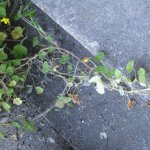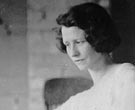
Frogs and toads and bats have had a special place in my heart for as long as I can remember. I love these beasties for their diversity, their versatility, their resilience, and for what they represent.
Beginning about two years ago — for reasons which go far beyond that lovely ghoul-haunted month meaning “8th month,” from the old ten-month Roman calendar, October — my interest in these creatures grew significantly. So that now, even after all the surreal strangeness and surprise and pain and mistakes of the past two years, these little living beasts of beauty remain as pure and pristine and beautiful to me as they ever were. What better time than mid-October to share this absolutely remarkable and pitch-perfect poem, written by an almost-forgotten writer named Gertrud Käthe Chodziesne (1894 — 1943), whose pseudonym was Gertrud Kolmar, a German poet of great power. I love animal poetry — and I’m not speaking hyperbolically when I say that this is truly one of my all-time favorite animal poems. It’s intimidatingly well-observed and evocative and gorgeous, with a delightful nod to Shakespeare in the very last line.
The Toad
The bluish twilight sinks with dripping dews,
Dragging behind its broad, rose-golden fringes.
Lone poplars stand out black on soft pale hues.
A tender birch dissolves to mist-gray tinges,
And apples roll like skulls toward the furrows.
The leaves, like crackling embers, fade to brown,
While ghostly lamps peer from a distant town.
White meadow fog brews beasts within their burrows.
I am the toad.
I love the stars of night.
The coals of sunset, evening’s ruddy load,
Smolder in purple ponds, barely alight.
Beneath the rainbarrel’s sodden wood
I crouch, low, fat, and wise.
My painful moon-eyes wait and brood
To view the sun’s demise.
I am the toad.
Whispering night is my abode.
A slender flute stirs
And sings in swaying reeds and sedge.
A velvet violinist whirrs
And fiddles at the field’s edge.
I listen, silent, from my soggy seat.
Then, pushing with my finger feet,
Beneath the rotten planks I creep.
Out of the morass, inch by inch I wind,
Like a thought that, buried deep,
Emerges from a muddled mind.
Through the weeds I hop and over gravel,
A dark and humble sense.
Over dew-soaked leaves I travel
Toward the black-green ivy by the fence.
I breathe and swim
upon a peaceful deep.
And from the garden’s rim,
With modest voice I peep
Among the feathered night, and rest
Defenseless. So be cruel —
Come kill me! Though to you I’m but a pest:
I am the toad. I wear a precious jewel.







